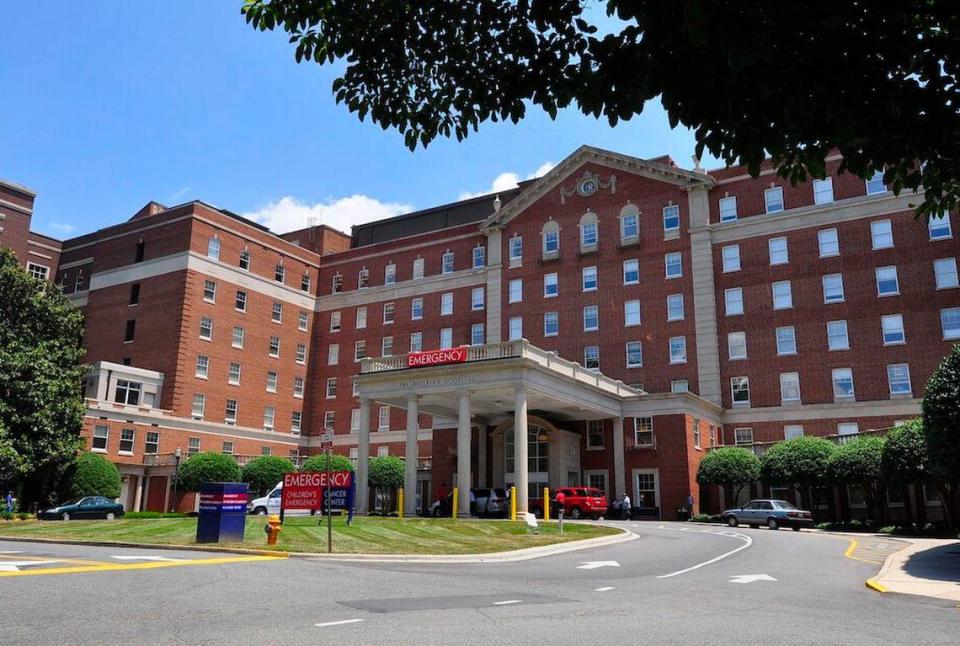Coronavirus prep ongoing at NC hospitals, companies and CLT as officials urge calm
As national attention turns to the possible threat of the latest coronavirus strain spreading in parts of the world, North Carolina officials want to remind residents the risk remains low.
There are still no confirmed cases of the virus in North Carolina, State Health Director Elizabeth Tilson said in a news conference Wednesday. But Charlotte businesses, hospitals and even churches are already preparing for the impact of the disease.
There have been 14 confirmed cases of that disease discovered in the U.S. as of Wednesday, and 445 people have been tested for it, according to the CDC.
That doesn’t include the 45 confirmed cases discovered outside of the U.S. in people who have been transported back. Anyone who believes they may have been exposed to the virus should call their health care provider or local health department.
Charlotte hospital experts are closely monitoring the virus. But the flu is a more immediate health risk to North Carolina residents, Novant Health said in a statement.

The new type of coronavirus — a large family of viruses that can cause illnesses like the common cold — has been dubbed Coronavirus Disease 2019, or COVID-19, by the World Health Organization.
Tilson said the state is well prepared for the possible spread of Coronavirus Disease 2019.
“This is a matter of (using) common sense to prepare, but not to panic,” she said.
‘Happy to be back’
But some Charlotte residents and businesses have already been affected by the spread of the new illness.
Isaiah Boyd, a sophomore at New York University and native Charlottean, was studying abroad in Florence, Italy, this semester.

Italy has been the European center of the outbreak of Coronavirus Disease 2019, jumping to 400 cases on Thursday, BBC News reported.
He got an email from NYU Monday night that its campus in Florence was closing temporarily and all students should fly back to the U.S.
He managed to get a plane the next night and landed in Charlotte at 1 a.m. Tuesday.
“I’m happy to be back in the U.S. so quickly,” Boyd told the Observer Thursday. “A lot of my friends had a lot of difficulty in airport, flights getting canceled.”
UNC Charlotte is taking precautions too. The university said Thursday it has canceled spring break study abroad programs to China, South Korea, Japan and northern Italy.
There are no reports of sick UNCC students or faculty studying abroad, the university said.
Davidson College said in a statement Thursday the college’s planned spring break trip to Italy has been canceled, and that no students or faculty are studying in China.
Businesses keep watch
Charlotte Douglas International Airport is working with Mecklenburg County Public Health to monitor the virus, the airport said in a statement. If passengers tell staff they feel sick, the airport’s protocol is to call Medic.
Many other Charlotte-area businesses are monitoring their offices and imports from China during the continued spread.
For instance, Lowe’s Home Improvement CEO Marvin Ellison told the Observer the company is keeping an eye on any possible impacts from the virus. He said the majority of spring products imported from countries like China have already arrived in distribution centers and stores, or are in transit.
“We don’t anticipate any supply chain disruption in the first quarter, which is really critical for us in the beginning of spring season,” Ellison said. “So we have no short-term concerns because of the coronavirus on our business.”
Part of Lowe’s plan has been to make sure products are on the shelf for customers to buy, which has put the company in a good position, he said.
In-demand imported products like surgical masks and protective clothing could be impacted, Ellison said, but for now, it’s hard to tell if there will be any interruptions.
Barings, the Charlotte-based asset manager with offices in Shanghai, Hong Kong, South Korea, Japan and Italy, temporarily closed its Shanghai office and is letting employees work remotely in other international offices.
“Clearly, we can’t manage everybody’s anxiety. There will be different levels of concern,” Barings global head of business resiliency Colm O’Keeffe said. “It would be impossible in a workforce of 2000-plus people to allay those fears. …All you can look for from your employer is to be flexible and provide reassurance.”
The Shanghai office is scheduled to reopen Monday.
Wells Fargo and Charlotte-based bank Truist have been monitoring the situation, both banks said in statements.
Bank of America, which is headquartered in Charlotte and has several branches in China, said that all of its offices are open and otherwise declined to comment.
On Wednesday, the Financial Times reported that Wall Street banks, including Bank of America, Morgan Stanley and Goldman Sachs, are planning to split their Tokyo staff into groups and “physically segregate” them for weeks at a time.
At church
Churches are taking precautions too, including the largest Catholic parish in the United States, St. Matthew Catholic Church.
The Charlotte church sees an increase in attendance this time of year during Lent — which is also during cold and flu season, operations and facilities director Antoinette Usher said.
The church has modified communion to limit the spread of germs — that includes lots of hand sanitizer, she said.
“It really wasn’t so much coronavirus as much as flu season,” Usher said.
Charlotte hospitals prepare
Hospitals are continuing to watch the virus’ spread as well.
Novant Health infectious disease specialist David Priest said the hospital system has protocols in place to deal with emerging infectious diseases, including patient travel history screenings and a mask-wearing policy for certain symptoms.
“This is a rapidly evolving situation and we are working closely with national, state and local health departments to protect our patients and team members,” Priest said in a statement.
Atrium Health’s medical director of infection prevention, Catherine Passaretti, said businesses should plan ahead.
”It’s possible that there will be periods where a large part of their workforce could be ill or need to stay out of work,” Passaretti said in a statement. “So it will be important to examine what it’s like to operate with fewer people, manage their supply chain ... and also avoid having group settings where the respiratory virus can spread.”
Passaretti said Atrium’s team of infectious disease specialists are in contact with the CDC and monitoring the virus’ progress.
“We’re also stressing to people to continue to take the common sense steps you would normally take to avoid catching a virus,” she said. “Everyone should wash their hands frequently, cover their mouths when they sneeze or cough and stay home when they’re sick.”
In Wednesday’s press conference, Tilson noted that people with symptoms should wear face masks, but face masks do not prevent already healthy people from catching the virus.
The state doesn’t have a test kit for the virus, although it is able to test potential cases of Coronavirus Disease 2019 through the Centers for Disease Control and Prevention, Tilson said.
People should continue to protect themselves from illness by washing their hands and not touching their face and mouth, Tilson said.
There is no one group or ethnicity in the U.S. that is more likely to acquire COVID-19 than others, the North Carolina Department of Health and Human Services emphasized in a statement. That comes amid reports nationally of some people of Asian descent being harassed over the virus.
“It is important to not let fear and anxiety lead to social stigma towards friends, neighbors or members of the community,” the agency stated.

